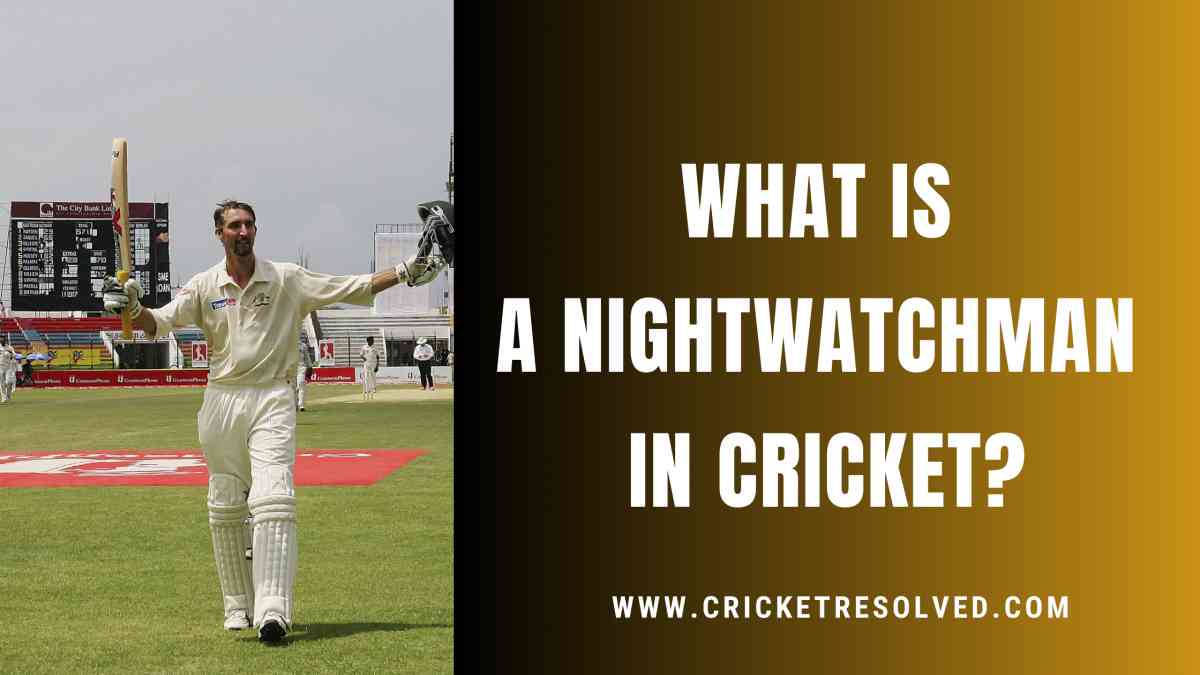
As you know, cricket has batters, bowlers, wicketkeepers, and fielders. But have you ever heard this cricketing term — a nightwatchman?
Well, if you are clueless, then I will break down the meaning of a nightwatchman and their role in cricket.
What is a Nightwatchman?
So, a nightwatchman is also a batter, although they are not specialists. This means that they are a specialist bowler or a lower-order batter.
But why are they called nightwatchmen?
You see, sometimes in a First-Class match or a Test match, a team can send a lower-order batter to bat up the order after a wicket falls. Now this can happen when the day’s play is about to end in a few overs.
This comes into action to preserve the wickets of the main batters since the playing conditions towards the end of the day are difficult. And even the task of the nightwatchman is to protect their wicket and see through the rest of the day.
Since these lower-order batters come to bat close to dusk and are tasked with preserving the wickets, they are referred to as nightwatchmen.
The nightwatchman can resume their batting on the next day’s play until their wicket falls. This practice is limited to the Test format, as the other 2 formats don’t require a team to protect wickets.
Now that you know about the nightwatchman, let’s have a look at their role.
Also Read | 6 Reasons Why Test Cricket is So Hard
Role of the Nightwatchman
A nightwatchman’s role is not to score quick runs or accumulate a huge score; rather, it’s about protecting the wicket at a crucial time. The teams instruct the batter to play defensively and keep the wickets safe for the next day’s play.
If they don’t lose their wicket at the end of the day, then it’s a job well done. This will allow the batting team to plan their next day’s play.
But what if the nightwatchman loses the wicket before the day ends?
Well, in that case, the team can either send one more nightwatchman or send their specialist batter.
However, there have been some instances where nightwatchmen have come out with flying colours. One such fine example is Jason Gillespie, who notched up a double century (201*) against Bangladesh in 2006.
The Australian bowler holds the record for registering the highest individual score as a nightwatchman in Tests. Isn’t it an insane record?



